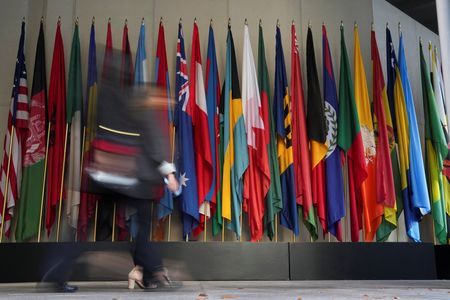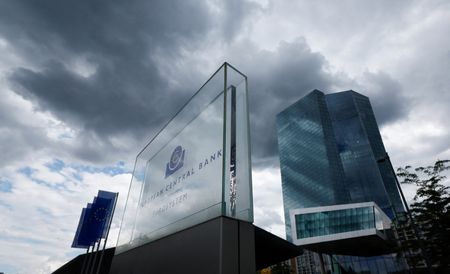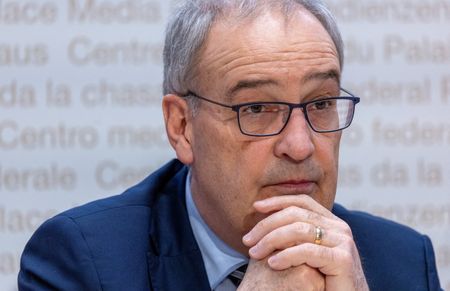WASHINGTON (Reuters) -French politicians agree that public finances need to be shored up and this consensus keeps financial markets calm despite the political instability France has been experiencing since mid 2024, the head of the IMF’s European department Alfred Kammer said.
Kammer said French fundamentals were sound, the country had no liquidity problems, French bond spreads over German paper were contained and France had a draft budget proposal with a lower budget deficit for 2026.
“In terms of these short-term risks, they haven’t risen to a level where one would need to be exceptionally concerned,” Kammer told Reuters.
“What makes us positive is that we expect the 2026 budget is submitted in line with the French commitments under European fiscal rules, in order to lower the budget deficit next to 4.7% of GDP,” Kammer said.
French public debt rose to 114.1% of GDP in the first quarter of the year from 113.2% at the end of 2024, well above the 88% of GDP for the whole of the euro zone, making France the third-most indebted EU country after Greece and Italy.
Kammer said that while French political parties would hotly debate the measures to reduce the deficit, the direction of the discussion — further consolidation — was clear and undisputed.
“What happens sometimes is that recognition is missing, and then the reminder comes by markets acting,” Kammer said.
“One reason why markets stay relatively calm is that the political class and members of parliament have clearly understood that this is a problem they need to tackle,” he said, adding the understanding did not exclude a difference of views on how the consolidation should be achieved.
(Reporting by Jan Strupczewski; Editing by Sharon Singleton)











